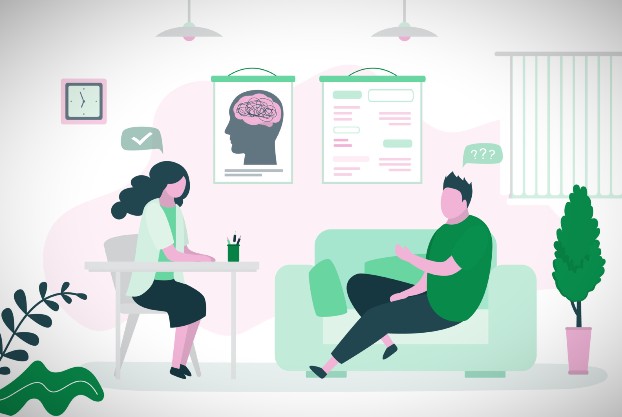
West palm beach rehab centre drug rehabilitation and addiction recovery combine therapy, examination, counselling, and education. Rehab programs are intended to help clients discover, diagnose, and treat drug addiction and co-occurring disorders. Many programs include medical detox to ease withdrawal symptoms and reduce the risk of reuse.
The Drug Rehabilitation Process
The drug rehabilitation process occurs in a few phases. After all, transitioning from physical and mental addiction to a healthy and happy way of living is a big change.
It is important that the steps to drug rehabilitation be properly addressed during the drug rehabilitation process. There are four stages of addiction recovery:
1. Assessment
Addiction assessment is an especially critical part of the rehab process. People with substance addictions are highly secretive. This is part of the underlying psychology of addiction, and it is reinforced by fears of arrest for possession and judgement from family and friends. The assessment process requires gaining trust and breaking through that secretive nature. The individual needs to identify which substances were used and the extent of their substance use.
Healthcare assessments are conducted over the phone by an assigned intake coordinator and should only take about 15-30 minutes, depending on current substance use and medical history. More than half of people with substance addictions have an underlying mental health disorder. Substance use and mental health disorders are closely tied together, and each can cause and perpetuate the other.
As such, it is crucial to identify any co-occurring mental health disorders and treat these at the same time as the addiction. Otherwise, the chances of success in recovery are greatly decreased.
2. Detox
To recover from substance use, people must first go through the process of ridding the body of the substances and their toxic metabolites. This process is known as detoxification, or detox. As the body clears the substances, the unpleasant experience of withdrawal occurs. The detox from alcohol use can be dangerous, even life-threatening.
People who regularly use alcohol should consult a physician or participate in a medically supervised detox program before stopping. For many people with addictions, fear of withdrawal is a major barrier to escaping their addiction, and that fear keeps them from even trying. Fortunately, withdrawal and drug detox do not have to be a terrible experience. By participating in a medical detox program, people can get through the experience safely and comfortably.
3. Rehab
The rehab process is the biggest part of an addiction treatment program. This is where the underlying causes of addiction are addressed. For most people with substance addiction, their substance use is no longer about getting high. Instead, it became a repetitive, daily process of avoiding withdrawal symptoms and escaping from their reality. Drug rehab is the process where the deep issues around the addiction are identified and addressed.
4. Aftercare
Regardless of the length or intensity of the rehab program, nobody walks out of rehab “cured” of addiction. Rather, it can be said that rehab is the process of discovery, while what happens afterward is recovery. The addicted mind often begins to believe, especially after a period of time in abstinence, that it is OK to try drinking or using substances again. However, this seldom works, and the vast majority of people who try drinking or using drugs again will quickly end up where they were before.
Research data confirms this, as well as the fact that people are at an especially high risk of overdose during a relapse. A common problem among rehab programs is that there is no sustainable plan for ongoing recovery support after discharge. There may be weekly drug rehab aftercare programs, but many people have to travel a considerable distance to attend these, and attendance tends to drop off over time.
Ongoing participation in a recovery program, such as a 12-step program or SMART Recovery, is crucial for ongoing recovery. West palm beach rehab centre rehab programs that introduce people to these aftercare programs are more effective at ensuring participation in ongoing recovery activities after discharge. Sober living houses are an especially effective approach to aftercare when an individual is discharged from rehab. People and their families should discuss these options with their counsellors while still in rehab.
When to get Drug Addiction Help
There are lots of symptoms of drug addiction, which can vary from person to person. These can also vary depending on:
- The type of drug you’re taking
- The method you’re using to take the drug
- The amount of the drug you’re consuming
- How frequently you’re using the drug
However, the following are some of the most common signs that you’re struggling with a drug addiction, and may need professional help:
- Building a tolerance to the drug, meaning you need to take more of this in order to achieve the ‘high’ you crave
- Focusing an excessive amount of time and money on obtaining and using the drug
- Being dishonest or lying to loved ones about your drug use
- Experiencing intense cravings for the drug, which affect your mood and concentration
- Taking drugs to try and ‘self-medicate’, and cope with pre-existing mental health problems or difficult emotions
- Continuing to take drugs despite the negative effects this has had on your personal, home, work or social life
- Experiencing drug withdrawal symptoms if you stop taking or are unable to get hold of the drug
What Is Drug Addiction Treatment?
Drug addiction “treatment” is a bit of a misleading term; it implies that people with addictions are “all better” after they have received some form of treatment. Really, recovery from addiction is a lifelong commitment that requires ongoing attention and care. Even people with years of successful recovery must remain mindful of their potential for relapse, and they must use the tools they learned in treatment to prevent it. The word “rehabilitation” also implies that someone is being corrected after misbehaving, which is consistent with society’s stigma about addiction. Part of the recovery process is for people at West palm beach rehab centre with addictions, and their families, to learn that addiction is a matter of biology and not morality. So, what is drug rehab? Drug addiction rehab or treatment is the process where people with addictions:
- Wash out the drugs and their toxic metabolites from their body
- Recover from the physical devastation of addiction
- Move from the extreme negative psychology of active addiction to the positive psychology of recovery
- Recover normal, healthy social practices
- Learn to handle life and its stressors without using substances or behaviours to cope
- Come to understand that recovery is a lifelong commitment to abstinence
- Become ready to take on the recovery activities that are necessary to maintain lifelong recovery
How Long Is Drug Rehab Treatment?
The type of treatment program is the biggest factor in determining how long drug rehab will be:
- Detox is usually around seven days
- Inpatient programs average 21 to 90 days
- Long-term residential care programs are usually three to 12 months
- Outpatient programs depend on the intensity of the program, but they usually range from a few weeks to three months
The U.S. Substance Abuse and Mental Health Services Administration (SAMHSA) compiles extensive data on drug rehab programs. According to their most recently published data, the average length of stay in drug rehab is:
- 90 days for discharges from outpatient medication-assisted opioid therapy
- 78 days for discharges from non-intensive outpatient treatment
- 42 days for discharges from intensive outpatient treatment
- 39 days for discharges from long-term residential treatment
- Five days for discharges from medication-assisted opioid detoxification
Drug Rehab Success Rates
How effective is drug rehab? Drug rehab statistics for success rates are very difficult to pin down for several reasons:
- There is a lot of variety in the quality, duration and intensity of programs
- There are many different program types in use
- It depends on the end-points that are used to define success (e.g., abstinent after one year, improved function, reduced criminal activity, etc.)
- It depends on the substances used (e.g., cocaine use has different relapse rates than does alcohol)
- Many people do not follow up after treatment, especially if they relapse
- Some program over-report their success rate to promote their program
Recovery is not always absolute. For example, a lapse (an episode of drinking or drug use that does not turn into a full relapse) or even a short relapse may be nothing more than a bump in the road. Some recovering addicts use these moments to reorient their recovery and get back to work on their recovery activities. The U.S. The National Institute on Drug Abuse states that 40% to 60% of people who complete treatment relapse.
What Is the Importance of Therapy for Drug and Alcohol Addiction?
Using behavioural therapies for drug and alcohol addiction has many benefits and studies show certain types of therapies are effective for helping people overcome their drug addiction. Here’s why:
- Therapy engages people in substance abuse treatment.
- Therapy provides incentives for people to remain sober.
- Therapy modifies peoples’ attitudes and behaviours toward drug abuse.
- Therapy increases life skills and teaches people how to manage stress, triggers, and high-risk situations in recovery.
Even if a client isn’t voluntarily going to treatment, therapy can help break down an individual’s resistance to treatment and open up the opportunity for recovery. There is no single effective cure for addiction, but the National Institute on Drug Abuse (NIDA) supports the notion that behavioural therapy and counselling is an essential part of the recovery process, although there are many other treatment modalities that can be used simultaneously to achieve positive, lasting results.
10 Types of Therapy Used in Addiction Treatment and Recovery
- Cognitive Behavioural Therapy for Addiction
- Contingency Management for Addiction
- Rational Emotive Behaviour Therapy for Addiction
- Motivational Interviewing for Addiction
- Family Therapy for Addiction
- 12-Step Facilitation Therapy for Addiction
- Eye Movement Desensitisation and Reprocessing (EMDR) Therapy for Addiction
- Dialectical Behaviour Therapy for Addiction
- Matrix Model for Addiction
- Person-Centred Therapy for Addiction








